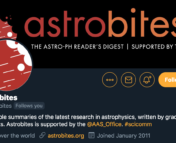Are you considering doing a PhD? Congratulations! Or perhaps, have you started, but are undecided on your advisor? Or are you in that common mid-PhD slump without any end in sight? Whoever you are, this guide might help you, because choosing an advisor that is right for you is one of the most important choices during your PhD. And congratulations on getting to this point!
We always say that a PhD is a relationship. By choosing an advisor, you are committing (although we’ll talk about this more) to enter a 3 to 6+ year long relationship after just one or two brief dates. Sounds stressful!
So how do you go about it?
Know yourself
Know your work style. Do you like to be helped along every step, or would you rather work independently? Do you like to meet several times a week, weekly, or rarely? Are you an organized and timely person, or are you okay with a bit of chaos? Do you prefer detailed discussions of the nitty-gritty analysis, or do you like to talk about the big picture? Do you like to be complimented and encouraged, or do you prefer dry, forward people?
Any answer to these questions are okay! We are all different, and what’s important is to know who you are and what you like. An advising style that suits one may not suit another. Personally, I’m okay with last-day proposal deadline rushes, weekly meetings, and little technical help. I thought I preferred dry cynicism, but learnt that kind and encouraging words feel amazing. Look for an advisor that matches you.
Supervision vs. independence
This is so important I will mention it again. You might prefer to meet with your advisor daily or almost never. Some advisors will pop in your office without asking. Some will leave on long sabbaticals. Ask your potential advisor what is their preferred style, and see if it suits you.
Your work style will also change! As you advance in your PhD and become your own researcher, you will need fewer meetings and less help with the technical details in favor of the big-picture discussion. Changes like this are not only fine – but a sign of growth. Which brings me to my next point…
Speak freely
…about expectations, among other things.
Work balance, salary, deadlines, tasks, meeting schedules – you should feel free to ask your advisor about all of these things without judgment. Of course, even with the most welcoming and accepting advisor, it will take you time to stop being nervous to ask. For many of us, a PhD is the first time we have to discuss pay issues or work arrangements with a boss. It’s okay to be nervous – but a good advisor helps you feel welcome to ask these questions.
Choosing your first project
So you got into the most amazing PhD institution, congratulations! Perhaps you’ve written the best research statement in the world, have your own fleshed-out research idea, and are ready to start right away. Amazing!
Most of us do not start off like this. You may have an idea for what you want to do, or you might have no clue at all – this is normal. Your potential advisor should have ideas for a PhD project that is interesting to you both, and should help guide you through it. This project should have concrete, achievable goals and a clear timeframe. After talking with a potential advisor, you should have an idea on how to approach the project and how it might result in a paper. And of course, it should seem interesting!
As you advance in your research and career, you will develop your own ideas, and you might take your project in a new direction. This is fine – discovery is what makes us scientists!
A scientist is not just their science
But discovery is not all that makes us scientists. Although doing research is important, it’s not the only part of our job (or it would be a little dull). Being a scientist is a career like any other, and comes with its own skills we need to learn. Your advisor’s job is not to train you to do research for them, but to help you grow as your own scientist and a future advisor to someone else.
You will need training in all parts of this life: writing papers and grant proposals, giving research talks, looking for jobs, reviewing papers, going to conferences, and even advising. A good advisor helps you navigate this minefield so at the end of a PhD, you feel prepared to do it alone.
A special mention goes to networking. As a naturally shy person, I was terrified of the word. You don’t need to – you are not alone! Your advisor will already have a large network of colleagues and collaborators. Go to group meetings and conferences, meet your advisor’s friends and their friends’ students, and try to grow your own connections through these interactions.
If you end up looking for an academic job later on, your advisor’s network can be an immense help. But if you’d like to do something else…
They should be open to all career options
You might be thinking of your PhD as a stepping stone for a different career. Or perhaps you are confident you want to be a professor, and then change your mind. At some point in their PhD, everyone I know doubted whether they’ll continue on in academia. It’s normal, and an important part of the process. A good advisor welcomes this.
If you are considering a career outside academia, your advisor might still be able to help. For example, if you think you’d like to do data science, ask if you can do an internship at a data science or a science-adjacent company. Work together to develop skills that will not only advance your research, but also land you a good job later on!
Speak to graduate students
When you meet your advisor for the first time, they will talk to you mostly about their science and projects. It’s exciting, important, and overwhelming. Use this talk to decide how well you vibe – is it easy to talk to them? Do they listen? Do you feel comfortable?
You might have time to ask some questions on this guide, but you might not. This is where you need to talk to their students. They’ve experienced working with their advisor, know their style, know their advantages and disadvantages. Ask the students these questions!
If all else fails
…but also remember, all student’s needs are different. A great or a scathing review from another student doesn’t mean you will find the advisor of your dreams right away. Sometimes, we still end up in a relationship that is not conducive to our growth as a PhD student, so don’t be afraid to change projects or advisors.
A favorite quote from my advisor is: “every PhD path is different”.
In the US, most universities welcome and encourage trying out different projects. Elsewhere, it’s less common, but definitely possible. I know people who switched research groups after 3 months and after 3 years. None of them regretted their choice.
If you feel down, discouraged, uncomfortable – speak up to get help. Speak to other students, graduate reps, program coordinators, academic advisors. Make sure to know the resources at your university where you can find help. If you are not happy in your relationship – you don’t have to be in it. Find a relationship that works for you.
Ending on a personal note, this is what I did at the start of my PhD. After a year of an unproductive relationship, I reached out to my peers for help. With a friend’s advice, I found advisors who helped me grow, supported me, and encouraged me. I turned from a near-dropout to a scientist, excited to continue on in academia. I am eternally grateful to them for an exciting four years of life, and for helping me find my own footing.
With the right advisors, a PhD doesn’t have to be a struggle – it can be a uniquely rewarding experience. I hope we all help each other find it.
To help you a bit more in making this choice, here is a list of some questions you can ask that may help.
Speed dating your advisor and their graduate students, a cheat sheet!
| Questions for potential advisors | Questions for their students |
|---|---|
| What are the current focuses of your research group? | How often do you meet with your advisor? |
| What is the funding situation? Are students funded through the summer? | What is the dynamic like between fellow group members? Do you work a lot with other students or post-docs? |
| How often do you meet with your students? | Do you think of your advisor as your boss, mentor, or a scientific peer? |
| How many other people are in your group? | How often do you take vacation? |
| Are you a part of any larger collaborations? | Are you involved in writing proposals and discussing your funding? |
| Are there opportunities to do research outside the institution, e.g. as an exchange term? | How much does your advisor oversee the writing process when you write papers? |
| How often do your students take vacation? | Have you ever had any personal problems during your PhD and did you feel supported by your advisor? |
| What grants and scholarships can I apply for, internal and external? | Have any graduate students within your group left or switched advisors and why? |
| How much of my time can I spend on other science activities e.g. outreach, science communication, etc? | Do you feel prepared for the next steps in your scientific career, industry or academia? |
| What careers do your students pursue after finishing their PhD? | |
| How often do your students go to conferences? | |
Edited by: Alice Curtin
Featured image credits: The Yoda Fountain at Lucasfilm’s Industrial Light & Magic at the Letterman Digital Arts Center in San Francisco’s Presidio (Wikimedia Commons)





I wish I’d known all of this when I started as a grad student almost thirty years ago.